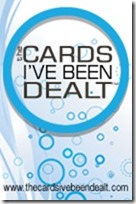 Last week I met my new neighbor’s 4-year-old daughter. I was with my dog, Rolo, and the little girl explained to me that her brother, just 22 months, was “obsessed” with dogs. It was a big word for a 4-year old. Her ability to recall the word and use it correctly was impressive. At 4, this little girl may make more decisions and verbalize more about her emotions than many seniors with Alzheimer’s disease. For example, she most likely gets to choose what book she wants to read, what she wants for breakfast, what television program she wants to watch and what play activity she enjoys. “Want” is the operative word here. In this child’s daily routine she is given choices that allow her to express her autonomy and independence. In turn, whether she knows it or not, she receives joy and satisfaction. One of the main challenges in caring for a person with early to mid-stage Alzheimer’s is allowing the person’s “wants” to be verbalized and fulfilled. When we choose a person’s clothes,...
Last week I met my new neighbor’s 4-year-old daughter. I was with my dog, Rolo, and the little girl explained to me that her brother, just 22 months, was “obsessed” with dogs. It was a big word for a 4-year old. Her ability to recall the word and use it correctly was impressive. At 4, this little girl may make more decisions and verbalize more about her emotions than many seniors with Alzheimer’s disease. For example, she most likely gets to choose what book she wants to read, what she wants for breakfast, what television program she wants to watch and what play activity she enjoys. “Want” is the operative word here. In this child’s daily routine she is given choices that allow her to express her autonomy and independence. In turn, whether she knows it or not, she receives joy and satisfaction. One of the main challenges in caring for a person with early to mid-stage Alzheimer’s is allowing the person’s “wants” to be verbalized and fulfilled. When we choose a person’s clothes,...
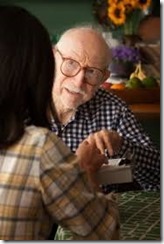 When I was in corporate America, the companies I worked for invested a lot of money in employee education and development. Part of the reason this is on my mind right now is because I saved all of my training manuals and just had the opportunity to go through them. I can see how training for senior and family caregivers may be even more important than training for employees was in my past career. Growth in the senior industry is causing lightning-fast change. It can be challenging to keep up, whether as an industry professional or as a senior or family caregiver. Those who don’t work in the senior care industry may not be aware that in our community we have dedicated professional organizations taking on the valuable role of training and education. Moving Seniors Forward (www.movingseniorsforward.org) is a Ventura County and San Fernando Valley network of professionals (one representative per profession) offering services, products and information for seniors and their families....
When I was in corporate America, the companies I worked for invested a lot of money in employee education and development. Part of the reason this is on my mind right now is because I saved all of my training manuals and just had the opportunity to go through them. I can see how training for senior and family caregivers may be even more important than training for employees was in my past career. Growth in the senior industry is causing lightning-fast change. It can be challenging to keep up, whether as an industry professional or as a senior or family caregiver. Those who don’t work in the senior care industry may not be aware that in our community we have dedicated professional organizations taking on the valuable role of training and education. Moving Seniors Forward (www.movingseniorsforward.org) is a Ventura County and San Fernando Valley network of professionals (one representative per profession) offering services, products and information for seniors and their families....
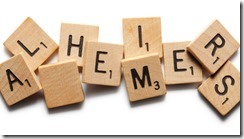 I know many people who worry about getting Alzheimer’s because a grandparent, parent or sibling suffers from it. When keys are lost, eyeglasses are misplaced, or things historically recalled are forgotten, family members of those with Alzheimer’s or other dementias often wonder if they, too, have the disease. But according to the Alzheimer’s Association, the greatest risk factor for Alzheimer’s disease is not genetics, it’s age. Alzheimer’s disease presents itself primarily in those age 65 or older. Statistics show the likelihood of developing Alzheimer’s doubles about every five years after age 65. After age 85, the risk reaches nearly 50 percent. Because so many people are living longer, we’re seeing a significant increase in the numbers with the disease. It’s predicted that by 2050, as many as 16 million Americans will be living with Alzheimer’s. One tool—memory screenings performed by qualified medical professionals—may help in determining if there’s been a decline in memory...
I know many people who worry about getting Alzheimer’s because a grandparent, parent or sibling suffers from it. When keys are lost, eyeglasses are misplaced, or things historically recalled are forgotten, family members of those with Alzheimer’s or other dementias often wonder if they, too, have the disease. But according to the Alzheimer’s Association, the greatest risk factor for Alzheimer’s disease is not genetics, it’s age. Alzheimer’s disease presents itself primarily in those age 65 or older. Statistics show the likelihood of developing Alzheimer’s doubles about every five years after age 65. After age 85, the risk reaches nearly 50 percent. Because so many people are living longer, we’re seeing a significant increase in the numbers with the disease. It’s predicted that by 2050, as many as 16 million Americans will be living with Alzheimer’s. One tool—memory screenings performed by qualified medical professionals—may help in determining if there’s been a decline in memory...
 A recent article in the Los Angeles Times titled “The Caregiver’s Dilemma” chronicled the author’s struggle to care for herself as she looked after her mother, who has dementia and was in a rehab facility with a broken hip. As I read the article, I could feel the author’s exhaustion. When she concluded that she could not take care of both herself and her mother at the same time, stating, “It’s one or the other, one at a time,” I completely understood what she meant. So many of us are becoming unpaid family caregivers, and the toll is not just on the caregiver. People are astonished when I tell them that family caregivers provide 80 percent of the long-term care services in this country and those services are valued at $577 billion—more than the total cost of Medicare. Yes, caregiving is a silent epidemic. Those caring for loved ones are often thrust into unexpected roles that are complex, costly and stressful. It’s not just a social issue; it’s a workplace issue too. According...
A recent article in the Los Angeles Times titled “The Caregiver’s Dilemma” chronicled the author’s struggle to care for herself as she looked after her mother, who has dementia and was in a rehab facility with a broken hip. As I read the article, I could feel the author’s exhaustion. When she concluded that she could not take care of both herself and her mother at the same time, stating, “It’s one or the other, one at a time,” I completely understood what she meant. So many of us are becoming unpaid family caregivers, and the toll is not just on the caregiver. People are astonished when I tell them that family caregivers provide 80 percent of the long-term care services in this country and those services are valued at $577 billion—more than the total cost of Medicare. Yes, caregiving is a silent epidemic. Those caring for loved ones are often thrust into unexpected roles that are complex, costly and stressful. It’s not just a social issue; it’s a workplace issue too. According...
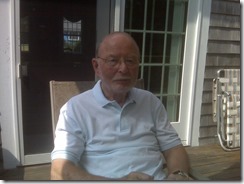 My mom was on a short errand this month when I called the house. My dad answered the phone. After some small talk, my dad asked me a cryptic question: “Is there anything serious you want to tell me about your mother?” I thought for a minute, but couldn’t come up with any secrets my mother had recently shared or serious conversations we had over the past few weeks. “I can’t think of anything,” I told my dad, and he seemed OK with that reply. A few days later, I asked my mom if she knew what dad’s question was all about. Frustrated, she said, “Your dad has too much time on his hands to think! He’s worried I’m going to put him in a nursing home.” It dawned on me this line of thought has been on my dad’s mind a lot lately. Recently, my aunt and uncle invited my mom to visit them down South this winter for a week’s respite. My sister offered to care for my dad, who has advanced Parkinson’s disease, during that time. Many of us have encouraged my mom to go away for some respite time...
My mom was on a short errand this month when I called the house. My dad answered the phone. After some small talk, my dad asked me a cryptic question: “Is there anything serious you want to tell me about your mother?” I thought for a minute, but couldn’t come up with any secrets my mother had recently shared or serious conversations we had over the past few weeks. “I can’t think of anything,” I told my dad, and he seemed OK with that reply. A few days later, I asked my mom if she knew what dad’s question was all about. Frustrated, she said, “Your dad has too much time on his hands to think! He’s worried I’m going to put him in a nursing home.” It dawned on me this line of thought has been on my dad’s mind a lot lately. Recently, my aunt and uncle invited my mom to visit them down South this winter for a week’s respite. My sister offered to care for my dad, who has advanced Parkinson’s disease, during that time. Many of us have encouraged my mom to go away for some respite time...
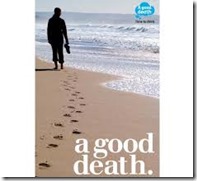 Death is a certainty for all of us, but the “where” and “how” are increasingly our own choice. I’ve been in the room for a handful of deaths and have heard clients and friends recounting stories about many more. Contrary to what some may believe, there are good deaths. Hildy’s was one. Hildy was the elderly neighbor that my husband, Peter, and I cared for. Her death at age 86 was quite remarkable. She was at home, in her own bed. She had ceased eating and drinking a few days before. Her breathing was not labored but slow, intermittent and shallow. Although she could not talk, we were told she wasn’t in any pain. Her favorite music was playing. The window shades were open to reveal her lovely rose garden. Her friends and neighbors had been by, one by one, to visit and let Hildy know how much she was loved. Her husband, Fred, was not anguished. He held Hildy’s hand lovingly, expressed his devotion and reminisced about the good times during their 60-plus years of marriage. ...
Death is a certainty for all of us, but the “where” and “how” are increasingly our own choice. I’ve been in the room for a handful of deaths and have heard clients and friends recounting stories about many more. Contrary to what some may believe, there are good deaths. Hildy’s was one. Hildy was the elderly neighbor that my husband, Peter, and I cared for. Her death at age 86 was quite remarkable. She was at home, in her own bed. She had ceased eating and drinking a few days before. Her breathing was not labored but slow, intermittent and shallow. Although she could not talk, we were told she wasn’t in any pain. Her favorite music was playing. The window shades were open to reveal her lovely rose garden. Her friends and neighbors had been by, one by one, to visit and let Hildy know how much she was loved. Her husband, Fred, was not anguished. He held Hildy’s hand lovingly, expressed his devotion and reminisced about the good times during their 60-plus years of marriage. ...
 For those who know me, I am more apt to have a “wine” moment than a “whine” moment, but every so often you just gotta give in to complaining. Even though I consider myself to be in good health physical ailments can still be a bother. For me of late, it’s been my shoulder. Several years ago, I was in my house playing catch with the dog and tripped and fell, dislocating and breaking my right shoulder. My husband would be the first to say he told me not to run in the house, but it happened. Five years after the injury, I’m still in pain. Come to find out, injuries like a broken shoulder can result in joint damage and cause post-traumatic arthritis. And a body can compensate for a once-broken bone in not-so healthy ways—like when other body parts take over for the injured area, thereby creating new problems. My shoulder hurts when I reach up for a dish in the cupboard, when I stretch my arms to fold sheets and towels, and when I put my arm around my husband or my dog. These little...
For those who know me, I am more apt to have a “wine” moment than a “whine” moment, but every so often you just gotta give in to complaining. Even though I consider myself to be in good health physical ailments can still be a bother. For me of late, it’s been my shoulder. Several years ago, I was in my house playing catch with the dog and tripped and fell, dislocating and breaking my right shoulder. My husband would be the first to say he told me not to run in the house, but it happened. Five years after the injury, I’m still in pain. Come to find out, injuries like a broken shoulder can result in joint damage and cause post-traumatic arthritis. And a body can compensate for a once-broken bone in not-so healthy ways—like when other body parts take over for the injured area, thereby creating new problems. My shoulder hurts when I reach up for a dish in the cupboard, when I stretch my arms to fold sheets and towels, and when I put my arm around my husband or my dog. These little...
 Earlier this month my husband and I moved my niece, an incoming freshman from Connecticut into her college dorm room at USC. The experience revealed to us just how much has changed since our days on a college campus. For starters, I was amazed at all the help available. Before arriving on campus, new USC parents could visit a Facebook page to communicate with other parents, getting questions answered and receiving advice and referrals from those who “have been there done that” with a child. In addition, each freshman can take advantage of a Facebook page strictly for the Class of 2018, where they share information with their fellow classmates. Student by student, a new social network is built. There’s also a program that looks similar to Match.com, except instead of helping to make love matches. It helps match up roommates. Students fill out a survey and the automated system highlights, for example, “5 students who have 80 percent of your same interests.” Students can begin...
Earlier this month my husband and I moved my niece, an incoming freshman from Connecticut into her college dorm room at USC. The experience revealed to us just how much has changed since our days on a college campus. For starters, I was amazed at all the help available. Before arriving on campus, new USC parents could visit a Facebook page to communicate with other parents, getting questions answered and receiving advice and referrals from those who “have been there done that” with a child. In addition, each freshman can take advantage of a Facebook page strictly for the Class of 2018, where they share information with their fellow classmates. Student by student, a new social network is built. There’s also a program that looks similar to Match.com, except instead of helping to make love matches. It helps match up roommates. Students fill out a survey and the automated system highlights, for example, “5 students who have 80 percent of your same interests.” Students can begin...
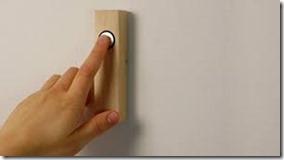 It’s been said that necessity is the mother of invention. Where's the story?4 Points Mentioned While this proverb is frequently true, I can say from my time in the consumer products industry that it isn’t always the case. Based upon marketplace staying power, Ben-Gay aspirin, Quisp and Quake cereals, and New Coke weren’t really necessities. The mothers of invention in those cases were probably the potential for higher profit margins or expanded product categories; in some cases they may have been a brand manager’s crazy idea that just went too far. Not being necessities, I suppose, these products never withstood the test of time. With so many people in our society entering seniorhood, mothers (and fathers) of invention will have lots of opportunities to devise new ways to address the needs of an aging population. Listed below is a small sampling of little inventions that have made a big difference in the lives of those on the other side of 50. For people with failing...
It’s been said that necessity is the mother of invention. Where's the story?4 Points Mentioned While this proverb is frequently true, I can say from my time in the consumer products industry that it isn’t always the case. Based upon marketplace staying power, Ben-Gay aspirin, Quisp and Quake cereals, and New Coke weren’t really necessities. The mothers of invention in those cases were probably the potential for higher profit margins or expanded product categories; in some cases they may have been a brand manager’s crazy idea that just went too far. Not being necessities, I suppose, these products never withstood the test of time. With so many people in our society entering seniorhood, mothers (and fathers) of invention will have lots of opportunities to devise new ways to address the needs of an aging population. Listed below is a small sampling of little inventions that have made a big difference in the lives of those on the other side of 50. For people with failing...
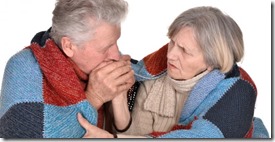 Last week I hosted an early morning meeting of care professionals at Senior Concerns. As we sailed into the second hour of our meeting and the early morning coolness gave way to summer heat, many of us in the room were sweating. When I asked why the room’s air conditioning hadn’t kicked in, I was told the thermostat was set at 78 degrees, as our Adult Day Program participants like it hot. No surprise here—thermostat wars happen every day at Senior Concerns. One person’s temperature comfort zone is different than another’s. When I asked the question though, I was reminded that, when it comes to our senior visitors, most like it nice and warm. I decided to do some research on why so many seniors prefer sauna-like conditions. I learned that babies and older people generally lose heat more easily through their skin because there is less fat and muscle to insulate them. If a senior is very thin, they will experience cold much more than seniors with a little more “meat on their...
Last week I hosted an early morning meeting of care professionals at Senior Concerns. As we sailed into the second hour of our meeting and the early morning coolness gave way to summer heat, many of us in the room were sweating. When I asked why the room’s air conditioning hadn’t kicked in, I was told the thermostat was set at 78 degrees, as our Adult Day Program participants like it hot. No surprise here—thermostat wars happen every day at Senior Concerns. One person’s temperature comfort zone is different than another’s. When I asked the question though, I was reminded that, when it comes to our senior visitors, most like it nice and warm. I decided to do some research on why so many seniors prefer sauna-like conditions. I learned that babies and older people generally lose heat more easily through their skin because there is less fat and muscle to insulate them. If a senior is very thin, they will experience cold much more than seniors with a little more “meat on their...